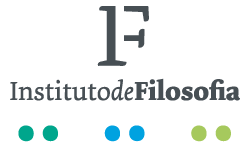À conversa com... Colin Sage | Alimentação e Ética
Published at 06/12/2021
Thematic Line
Medieval & Early Modern Philosophy
10 de dezembro 2021 | 17h00 | Sala 0.103
1ª sessão | "À conversa sobre Alimentação e Ética"
1st talk | "Talk about Nutrition and Ethic"
À conversa com... | Talk with... Colin Sage
Planetary health, sustainable diets and the ethical challenge for nutrition science
Orador | Speaker: Colin Sage (Professor aposentado da University of Cork | Retired Teacher from University of Cork)
Moderação | Moderator: José Meirinhos (Vice-presidente da Comissão de Ética da FCNAUP | Vice president of FCNAUP Ethics Commission | IF-UP)
A participação é livre, mas com lugares limitados.
Inscrição obrigatória: https://forms.gle/dpfUSmKMinJw2bSV6 (até dia 9 de dezembro 2021)
The participation is free, but with limited places available.
Registration is mandatory: https://forms.gle/dpfUSmKMinJw2bSV6 (until 9th December 2021)
Planetary health, sustainable diets and the ethical challenge for nutrition science
The concept of planetary health is becoming ever more central in efforts to better understand the interconnected challenges of this decade. Scientific evidence is demonstrating that the Covid-19 pandemic, the climate emergency, continuing deforestation, and rising nutritional insecurity - amongst other pressing issues - are all inter-related and yet we appear to lack the institutional arrangements and policy tools capable of addressing them. The food system is one of the main drivers that connects these disparate issues and while delivering sufficient output to feed an estimated 10 b people, environmental destruction and dietary ill-health appear to be the consequence. Advocates for, and critics of, the existing global food architecture appear to agree on the desirability of more ‘sustainable’ diets – but naturally they define this is quite different ways. Which is why the nutritional sciences have such an important role in helping to lead a pathway to a more food secure future. However, this will require a willingness to engage in more transdisciplinary research endeavours, moving beyond recognised expertise in the role of nutrients in health and embracing the more complex challenge presented by a planetary health paradigm. This will be key to enabling a more socially just, nutritionally secure, resilient, and sustainable future in which all eat well within planetary boundaries.
Dr Colin Sage is an Irish research scholar who has worked on the interconnections of food systems, agriculture, environment, and wellbeing throughout his career. His field experience includes research in Bolivia, Mexico and Indonesia as well as food security evaluations in Ethiopia, Pakistan and Central America. He has worked closely with artisan food producers in Ireland and more recently has been actively engaged in exploring civic initiatives for social change: he was the founding Chair of the Cork Food Policy Council in 2013. Colin has been a member of several European research networks, has held visiting research positions at the Universities of Tasmania (Australia) and Bergamo (Italy) and is currently Visiting Professor at the American University of Rome and at the University of Gastronomic Sciences near Turin. He is the author of Environment and Food (2012); and co-editor of five books including: Food system transformations: Social movements, local economies, collaborative networks (2021); Food Transgressions: Making sense of contemporary food politics (2017); and Metaphor, Sustainability, Transformation: Transdisciplinary Perspectives (2021). He was also co-editor of a recent journal special issue on the topic: Sustainable Food Systems Sustainable Diets and is currently completing an edited book A Research Agenda for Food Systems. He now lives in Viana do Castelo.
Organização:
Comissão de Ética da FCNAUP
